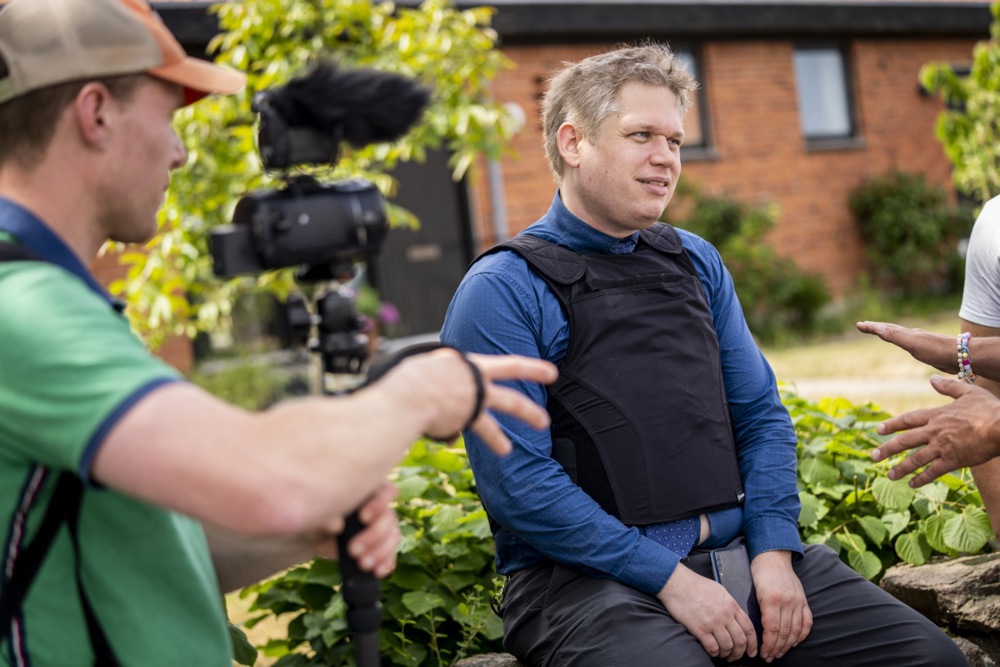Anna-Karin Hatt, the leader of the Swedish Liberal Centre Party (Centerpartiet), caused surprise when she announced her resignation, citing an unbearable wave of hatred, online abuse and personal threats.
She made the announcement today after being party leader less than six months. Her Centre Party has been left in a state of shock, with many militants feeling angry and disappointed, national TV broadcaster SVT reported.
At a sombre press conference in the capital, the 52-year-old former minister cited a hateful online climate as the cause for her decision.
Hatt described the move as “the toughest decision of my professional life”, emphasising that the escalating hostility had eroded her sense of safety in both public and private spheres.
“The hatred and threats I’ve faced since becoming party leader have been worse than I could have imagined. It gets under your skin,” a visibly emotional Hatt told reporters.
She added that the abuse was not isolated to a single incident but to a cumulative toll.
“You feel that you have to constantly look over your shoulder and can’t even feel safe in your own home. I had not been able to understand in advance all that was going to be directed at me,” she said.
In her resignation letter to party members, leaked shortly after the press conference, she talked about the human cost: “The societal climate has hardened and become increasingly polarising … It affects me much deeper than I thought it would.”
Asked about how the threats manifested themselves, Hatt said she did not want to go into detail. “It becomes far too personal and it comes too close. I am content to state that this is a weighted assessment that I am making based on a situation that consists of both direct hatred and threats but also of a harsh social climate.
“There are also security measures in place to ensure my physical safety and that of others”, she said, adding she was “genuinely grateful for the work that the security police do”.
Hatt will not seek re-election at the party’s November congress in Karlstad, where a successor will be chosen. She urged the Centre Party to rally around a new leader to “take responsibility for Sweden’s future”.
Other Swedish politicians reacted strongly on the stepping down of Hatt.
Prime Minister Ulf Kristersson of the Moderate party said on X: “Our democracy is based on ordinary wise people daring to raise their hands, step forward and take responsibility – for themselves, but also for others and their city or country. The intransigent and gaping climate that increasingly prevails in politics – with hatred and threats – must never be tolerated.”
Christian Democrat Party leaders and Deputy PM Ebba Bush called it “a dark day for Sweden”.
“When hatred and threats prevent an experienced and competent politician from serving their country, it undermines our democracy. Anna-Karin, on a personal level, I am so sorry for what you have had to go through, and on a professional level, I was looking forward to more constructive conversations and discussions with you,” Bush said on X.
Amanda Lind, spokesperson for the Green Party, said that the resignation following threats and hatred were “not worthy of our democracy”.
“We all have a responsibility now, to reflect and act to safeguard a democratic and open society,” she added.
Magdalena Andersson, leader of the Socialist Party, called it “a failure of our society”.
Jimmie Åkesson of the Sweden Democrats said: “Recurring hatred and threats directed at us politicians is a tragic and tangible fact. I can personally relate to that.”
Hatt was a seasoned figure in Swedish politics.
She previously served as as IT and energy minister in the centre-right Alliance government from 2010 to 2014, earning acclaim for her work on digital agendas and renewable energy.
After leaving frontline politics, she headed influential organisations such as Almega (the service sector employers’ group) and the Federation of Swedish Farmers (LRF), building a reputation as a pragmatic advocate for rural development, “green” transitions and economic liberalism.
With less than a year until the election, the Centre Party must now quickly select a new leader. The nomination process will begin immediately, aiming to present a candidate at the party conference starting on November 1.
Sweden’s Minister for Civil Defence, Carl-Oskar Bohlin, found himself pursued through the streets of Stockholm by a group of pro-Palestinian demonstrators and was forced to seek shelter in the Parliament. https://t.co/Q2aUkXuCs8
— Brussels Signal (@brusselssignal) September 10, 2025





